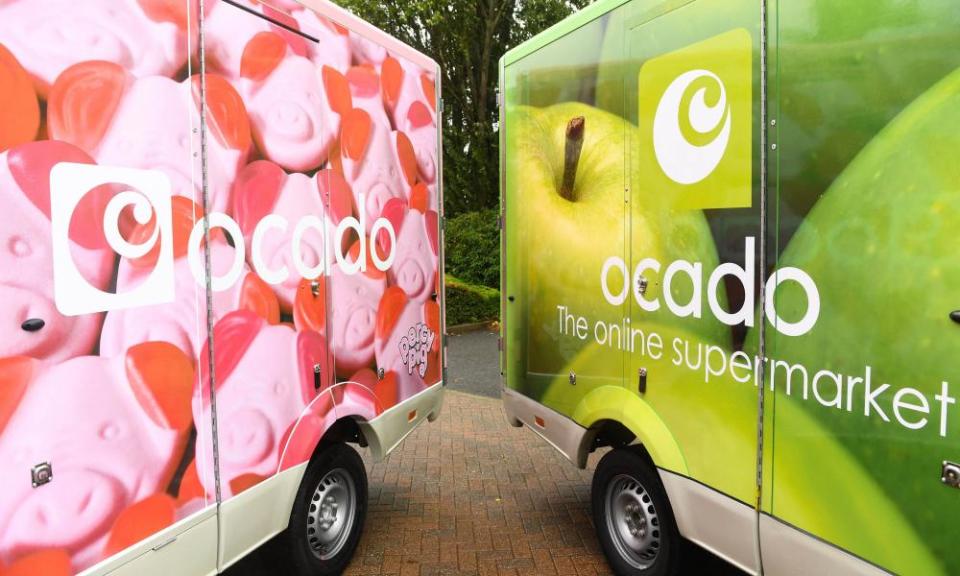Ocado halves growth forecast amid cost of living crisis and return to offices

Ocado has warned that its sales growth would be less than half the rate it had hoped for as the cost of living crisis and return to office work and dining out hit trade.
The online grocer, which is partly owned by Marks & Spencer, said it now expected growth of less than 5% for the year to the end of November, compared with 10% anticipated.
The estimate came after sales fell 8% in the two months to 25 April, compared with a 5.7% decrease in the previous three months. Shoppers have been buying fewer items than usual.
“The trading environment has deteriorated,” Ocado said in a statement, “with the cost of living crisis compounding the impact of a return to more normal consumer behaviours as restrictions have ended and many people return to the office.”
Ocado, which switched to a partnership with M&S in September 2020 after 20 years of selling Waitrose groceries, said it continued to win market share but the online grocery market had declined 20% year on year because people were returning to shopping patterns more like those before the pandemic.
Online grocery sales boomed during the height of the coronavirus crisis because of shoppers wanting to avoid crowded supermarkets and more people were able to accept home deliveries as they had switched to working or studying from home.
While the online grocery market remains at least 50% larger than before the pandemic, sales have sunk back in recent months to be about 12% of total grocery sales, after peaking at more than 14% two years ago.
Ocado said that as food retail prices were rising by about 4% or 5%, customers were ordering one or two fewer items each shop than before, so that the value of the average basket was down about 9% compared with a year ago.
It added: “The fundamentals of the business are strong and Ocado Retail is confident that sales and [underlying profit] contribution will follow an increasingly positive trajectory in the medium to long term.”
Steve Rowe, the chief executive of M&S, said the sales fall was a “short-term reversal” and it was “clearly the right thing” for the retailer to have bought a stake in Ocado and to begin selling food online.
Eoin Tonge, the chief financial officer of M&S, added that the company expected Ocado to regain its former profitability within three or four years. “Its proposition is relatively unique in terms of range and service levels and we feel it can compete very well in that marketplace,” he said.

 Yahoo Finance
Yahoo Finance 